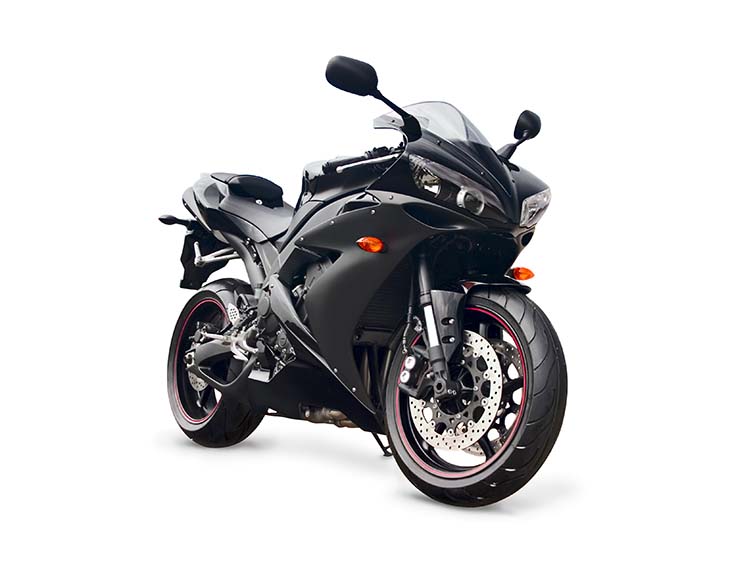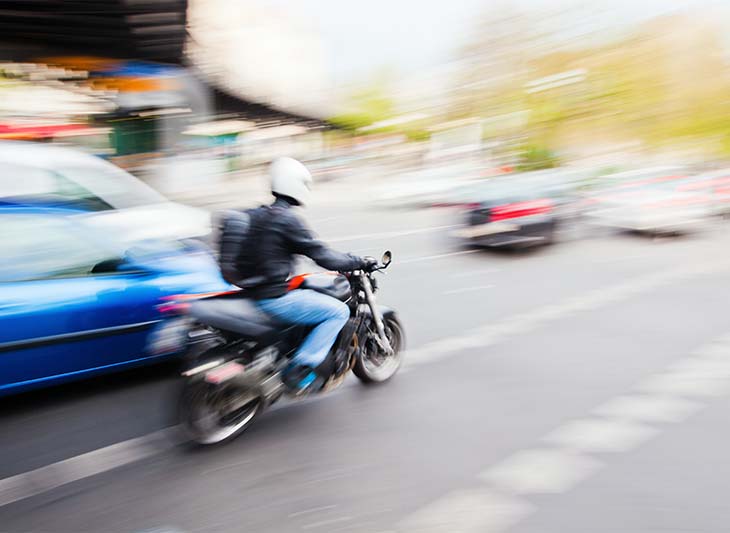Recent figures from the Motorcycle Industry Association (MCIA) show a significant increase in sales for motorcycles and scooters last year.
In fact, smaller sized motorcycles and scooters were sold in 2015 than in any other year since 1983 (when comparative records began). The MCIA also found motorcycle dealers reporting an increase in families opting for a motorcycle as opposed to a second car.
Advantages of motorbike commuting
Having access to both a motorbike and car, I can see why two wheels are becoming more popular as a daily commuting option. There are obvious benefits, such as a reduced commuting time, not having to wait in traffic, reduced running and parking costs, and the fact they’re less harmful to the environment.
And if your commute is anything like mine, i.e. highly congested, then the benefits become quite significant indeed. Looking back, having a motorbike as a commuting option was one of the key factors for me taking my test and purchasing a motorbike.
In fact, the underlying feeling of having freedom was what drew me to riding motorbikes in the first place, and this became immediately clear when faced with traffic, which of course is intrinsic on British roads.
Now I take this privilege for granted and even find myself becoming frustrated at having to deal with traffic, with the need to remind myself that at least I don’t have to sit and wait amongst all the cars.
Disadvantages of motorbike commuting
Of course, nothing is perfect, and there are drawbacks to riding a motorbike to work and back.
Firstly, motorbikes do not offer anything in the way of comfort from the wet and cold weather, and although there is a wide range of seasonal apparel to choose from, it can turn into a bit of a burden having to get in and out of your gear every trip.
Secondly, you are much more vulnerable compared to other road users without the protection of an outer steel shell or even a seat-belt!
Thus, your concentration levels are far higher, whereby you’re constantly trying to read the intention of other road users and surveying the road for hazards (including oil slicks and drain covers in the rain).
Again, bikers are spoilt for choice in terms of armoured gear, but this all needs to be taken into account when considering your overall expenses as good quality gear is pricey.
Finally, motorbikes require closer attention when it comes to maintenance and checks. Keeping your motorbike in good working order is not only good practice; it’s essential.
For example, something trivial like a faulty indicator can be quite serious – if you’re unable to signal your attention to other road users, the chances of being involved in an accident suddenly increase.
Also, checking the condition of your tyres is fundamental before every ride, and especially so in wet and cold conditions.
It’s worth noting that motorbike tyres are much softer and prone to punctures and, coupled with the fact that filtering through traffic often requires you to ride over dirty areas of the road, it’s very easy to pick up a stray screw.
The winner?

In my opinion motorbikes are a clear winner by a considerable margin. Yes, I do still use my car on occasion, but only if the weather is particularly bad or I’m not at my physical best.
Cars just aren't the right tool for the job
Aside from that the motorbike is always my preference. Cars, as comfortable as they are, are just not the right tool for the job and here's why:
- A waste of space
Most cars are only used by a single occupant with very little baggage. Whether it’s used or not, all this surplus space needs to be transported around and kept at a temperature for the occupant. - Less efficient
Engines run most efficiently at a certain rev range, which is often not met when driving slowly in traffic. Of course, the size and type of car is a big factor here, but all cars are designed to run at their best above idle. - More emissions
Although it’s becoming more commonplace for cars to have ‘Start-stop’ technology (whereby the engine automatically cuts out when stationary and then restarts when put back in gear), most cars still have their engines running constantly during the commute journey.
Furthermore, all this time that the engine is running at idle speed, toxic fumes are bellowing out into the atmosphere. - Longer journey time
Waiting in traffic, breathing in exhaust fumes and not being in full control of your journey can be stressful. When you factor in the cumulative time that is spent in this situation, it’s quite easy to feel demoralised about your daily commute, and even resentful about your job.
My short 3-mile congested commute takes around 30mins by car, but by motorbike it only takes 15mins (riding considerately), each way.
So each week I save 2.5 hours using my motorbike, which is valuable time when you have a young family.
It’s well worth calculating your commute time and considering if you can spare some additional free time.
Motorbike Finance at Creditplus
So logically it all make sense; motorbikes win the battle for best commuting transport. And we haven’t even touched on how much fun these things are to ride – but careful though, you may even find yourself looking forward to your morning commute!
Creditplus not only provide finance for your car - we also provide motorbike finance. Furthermore, we will even source the bike of your choice for you and deliver it to your door, if you require. Alternatively, if you have already found a bike that you want, we can arrange just the money to seal the deal.






 Facebook
Facebook Twitter
Twitter Instagram
Instagram LinkedIn
LinkedIn Youtube
Youtube